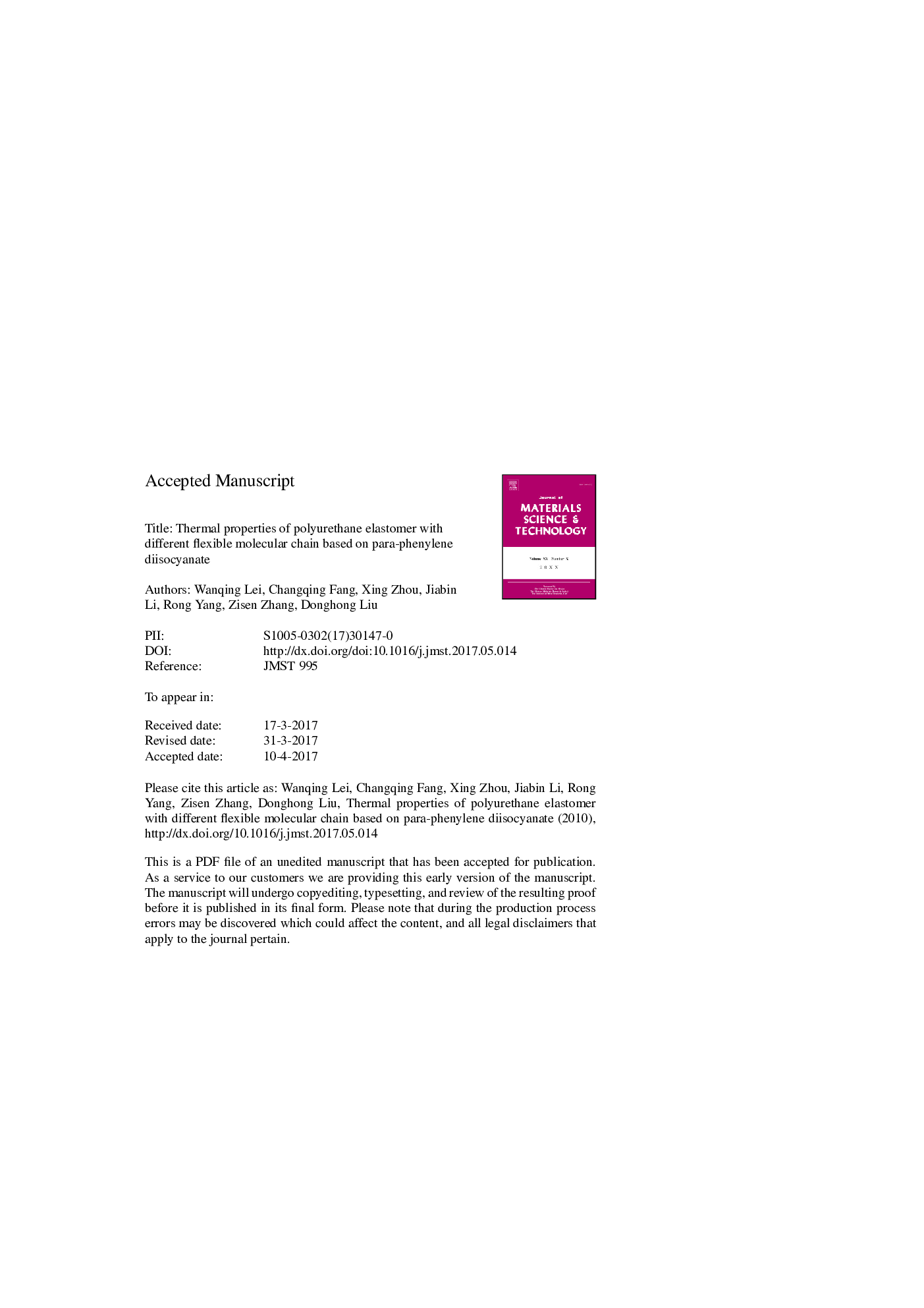| Article ID | Journal | Published Year | Pages | File Type |
|---|---|---|---|---|
| 7952183 | Journal of Materials Science & Technology | 2017 | 30 Pages |
Abstract
This work focuses on the relationship between flexibility of molecular chains and thermal properties of polyurethane elastomer (PUE), which laid the foundation of further research about how to improve thermal properties of PUE. A series of PUE samples with different flexibility of molecular chains was prepared by using 1,4-butanediol (1,4-BDO)/bisphenol-a (BPA) blends with different mole ratios including 9/1, 8/2, 7/3, 6/4 and 5/5. As comparison, PUE extended with pure 1,4-BDO and BPA was also synthesized. These samples were characterized by differential scanning calorimetry (DSC), thermogravimetric analysis (TGA), dynamic mechanical analysis (DMA), etc. The results showed that with the decrease in flexibility of molecular chains the glass transition temperature (Tg) increased and low-temperature properties became worse. Besides, all samples had a certain degree of microphase separation, and soft segments in some samples were crystallized, i.e. the decreasing flexibility of molecular chains led to the impossibility of chains tightly packing and crystalline domains forming so that the degree of microphase separation decreased and the thermal properties became worse.
Related Topics
Physical Sciences and Engineering
Materials Science
Materials Chemistry
Authors
Wanqing Lei, Changqing Fang, Xing Zhou, Jiabin Li, Rong Yang, Zisen Zhang, Donghong Liu,
